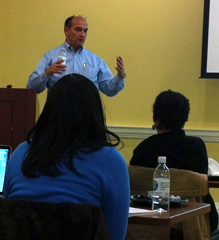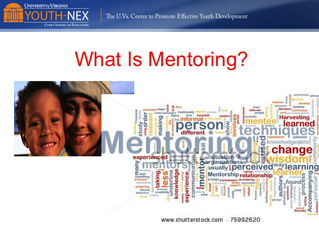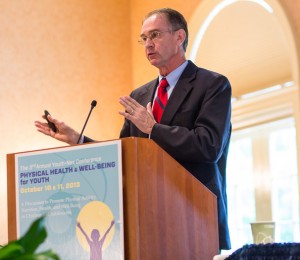Youth-Nex director Patrick Tolan, talks about “What Works in Mentoring?” at the recent YN Works In Progress meeting.
Reported by Youth-Nex Editors
Patrick H. Tolan is professor at the University of Virginia in the Curry School of Education and in the Department of Psychiatry and Neurobehavioral Sciences in the School of Medicine. He is director of the cross-University multidisciplinary center, Youth-Nex: The U.Va. Center to Promote Effective Youth Development.
Audio and slides are posted here.
Background, Questions, and Definitions
For 20 years we have known that mentoring can be beneficial, yet we still do not know much about what causes these benefits. Tolan discussed his study, the first meta-analysis to look at the processes inside mentoring.
What difference do mentoring activities like modeling, teaching, emotional support, and advocacy make? Is all mentoring positive?
Knowing how such programs work is important. Some popular social programs thrive and continue to receive funding despite the fact that they fail at producing the desired results. At the same time, we can spend 10 years doing empirical studies which do produce results. Despite this, we don’t fund or create programs based on proven interventions. Mentoring works and it is popular, so it’s important to learn how it works. Continue reading



